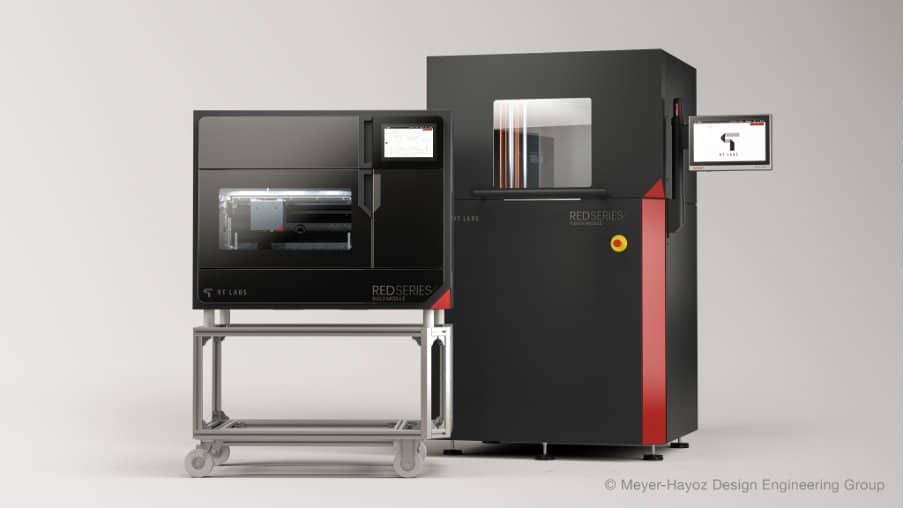9T Labs AG, here, has just received the “Solar Impulse Efficient Solutions“ label on the company’s Red Series® Additive Fusion Solution, a technology that permits the rapid, affordable, and repeatable production of carbon fiber-reinforced structural composite parts via a hybrid manufacturing process that combines 3D printing and compression molding. The label was developed by the Solar Impulse Foundation (Lausanne, Switzerland), an environmental non-profit dedicated to accelerating the implementation of clean and profitable technology making a positive impact on the environment and human quality of life. The Solar Impulse Efficient Solutions label has been awarded to 1,000+ products/technologies globally following evaluation of nominations by an external panel of independent experts and renown institutes said to have applied a neutral judging metric based on verified standards.
The Solar Impulse Foundation was co-founded by Bertrand Piccard and Andre’ Borschberg in 2003 in collaboration with the Swiss Federal Institute of Technology (Lausanne). The group is best known for sponsoring the first flight powered entirely by solar energy using experimental, long-range aircraft that successfully completed a round-the-world trip in 2016. That same year the Solar Impulse Efficient Solutions program was announced with the intention of identifying 1,000 or more clean and profitable solutions from business startups that address environmental challenges without compromising economic growth. The hope is that by providing those economically viable green startups with visibility, they will attract the political and economic decision makers to help speed adoption of ambitious energy and environmental programs and achieve carbon neutrality.
9T Labs’ technology enables high-performance structural parts — in challenging small-to-medium size and thick sections — to be produced in carbon fiber-reinforced thermoplastic composites in production volumes ranging from 100 to 10,000 parts/year. By combining 3D printing (which offers unexcelled design freedom, part complexity, and control of fiber orientation) with compression molding in matched metal dies (providing rapid cycle times, high production rates, excellent surface finishes with low voids, plus high repeatability and reproducibility (R&R)), the hybrid production system offers the best of both additive and conventional / subtractive manufacturing.
The patented Red Series Additive Fusion Solution platform consists of a Build Module (3D printer providing fiber layup and preform production) and a Fusion Module (compact compression press providing preform consolidation and final part forming). Together, the system can rapidly, efficiently, consistently, and cost-effectively produce structural parts with heretofore unmatched levels of complexity in advanced (carbon fiber-reinforced) thermoplastic composites for initial prototyping through to high-volume manufacturing. Thanks to the use of proven industry-standard materials — in high performance neat (unreinforced) and carbon fiber-reinforced polyamide 12 (PA12) and polyetherketoneketone (PEKK) — lightweight, structural composite parts capable of replacing metals in challenging environments can be produced affordably with very-low waste, an excellent buy-to-fly ratio, and high levels of R&R. Since the thermoplastic matrices are melt reprocessed, scrap material and parts can be recycled, and multiple 3D-printed subassemblies can be welded together during the Fusion step. The technology is supported by 9T Labs’ Fibrify® design suite, which allows CAD files to be imported, part design and fiber layups optimized, then moved into major commercial structural analysis programs to verify structural performance. This eliminates the costly and time-consuming “make & break” cycle of designing parts, producing and testing prototypes, and further modifying designs to more closely meet performance and cost targets. In turn, this helps manufacturers bring parts to market faster and at lower cost.



